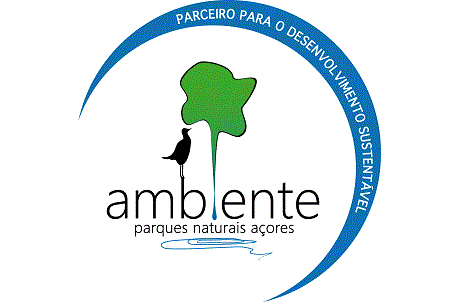TEAM

João Pereira

Nina Viera

Laura Pérez

Rita Carriço
PARTNERS
DRAM. Direção Regional Dos Assuntos Do Mar.
The Regional Directorate for Sea Affairs was established within the new structure of the X Regional Government of the Azores, established by the Regional Implementing Decree no.17/2010/A of September 21. Our most important mission is to enhance the Azores sea by increasing its usefulness, maintaining its splendour and ensuring its environmental quality.
We draw special attention to the activities related to the protection of the marine environment, including the implementation or reinforcement of marine protected areas, and their biodiversity.
This new service aims to provide a response to challenges such as the implementation of the Azores Marine Park, the conclusion of the Maritime Spatial Plan in the Azores, always taking into account the contribution to the maintenance or recovery of the environmental quality of the Azores sea.
In order to stimulate the balance between the different pillars of sustainable development, we will contribute to the development of new activities based on the use of marine resources, such as the production of renewable energies as an alternative to fossil fuels. As a result of the misuse of thermal energy worldwide, this service will be charge of coordinating the investment deemed necessary to adapt the Azorean coastal areas to global climate change.
All of these activities may be always followed by active citizens committed in informed participation within the limits set by law.

OMA. Observatorio do Mar dos Açores NGO.
Science alone cannot accomplish societal changes if not accompanied by outreach and awareness activities, actions and campaigns. The general public is eager to see the results and to get informed about the consequences that daily unconscious actions cause in our local marine environment and human health.
Awareness on this critical environmental issue in Faial was approached through different types of actions, engaging a wide range of participants (children, fisherman, environmental technicians and the general public). Educational programs are vital to create the basis for behavioural changes; sharing of knowledge, concern and information with the younger members of society, which may contribute to extend the awareness about the problem of marine litter to adults.
The establishment of responsible behavioural conducts should be one of the main objective of the bridge between scientific work and the general public. Scientific results are gathered to be shared with those who are seeking for answers in their daily questions. By continuing to raise public awareness and educate specific target groups on marine litter, we believe that new projects with broader aims and goals can be implemented.

COSTA PROJECT
COSTA project is funded by the Marine Turtle Conservation Fund of the US Fish and Wildlife Service and the Archie Carr Center for Sea Turtle Research, and is carried out by the Institute of Marine Research (IMAR) and the Azores Fisheries Observer Program (POPA), in colaboration with the Sea Observatory of the Azores (OMA), the Regional Directorate of Sea Affairs (DRAM) and the Regional Directorate for Fisheries (DRP) of the Azorean Government, and the Polytechnic Institute of Leiria (IPL). Furthermore, we would like to emphasize the valuable collaboration of ship owners, captains and crews of the surface longline fleet, to whom we are very grateful.


Frederic Vandeperre

Hugo Parra
PARQUES NATURAIS DAS ILHAS DOS AÇORES


Programa de Observação para as Pescas dos Açores (POPA)
In the late 1990’s, it became clear that tuna industry would be seriously penalized with the absence of a “Dolphin safe” certification which instigated new measures from the government and the fisheries sector.
In order to achieve this certification, the Azores Fisheries Observer Programme was funded in 1998, ensuring the absence of dolphin mortality or injury in tuna fishery. Since then, fishery and fishing products are certified by the Earth Island Institute, through the results presented by POPA. Besides that, tuna fishery is also certified as “Friend of the Sea” (www.friendofthesea.org) which means that it is extremely selective, doesn’t harm the surrounding environment and is quite sustainable. It became the first tuna fishery in the world achieving that certification.
The Programme results from an agreement between Regional Administration, Earth Island Institute, the Tuna Canning Industry Association (Pão do Mar), the Fishing Boat Owners Association (APASA) and IMAR – Instituto do Mar - through the University of The Azores Center (IMAR-DOP/UAç), which carries out the programme. Until 2003 the Programme was supported by regional funds. Between 2003 and 2005 it became co-financed by the European Commission through the INTERREG IIIb Programme/ ORPAM project. Since then it has been exclusively supported by the regional government through the Regional Secretary of Fisheries.
The Rebikoff-Niggeler Foundation (FRN)
The Foundation’s goal is to facilitate research and in-situ observation and documentation of deep-sea environments by means of manned submersible technology.
FRN has been declared an Institution of Public Benefit by the Azorean Government, in the year 2000.
Besides carrying out research projects, including joint projects with scientific partners, FRN publishes educational material on the deep sea, and carries out film work for ocean documentaries.



